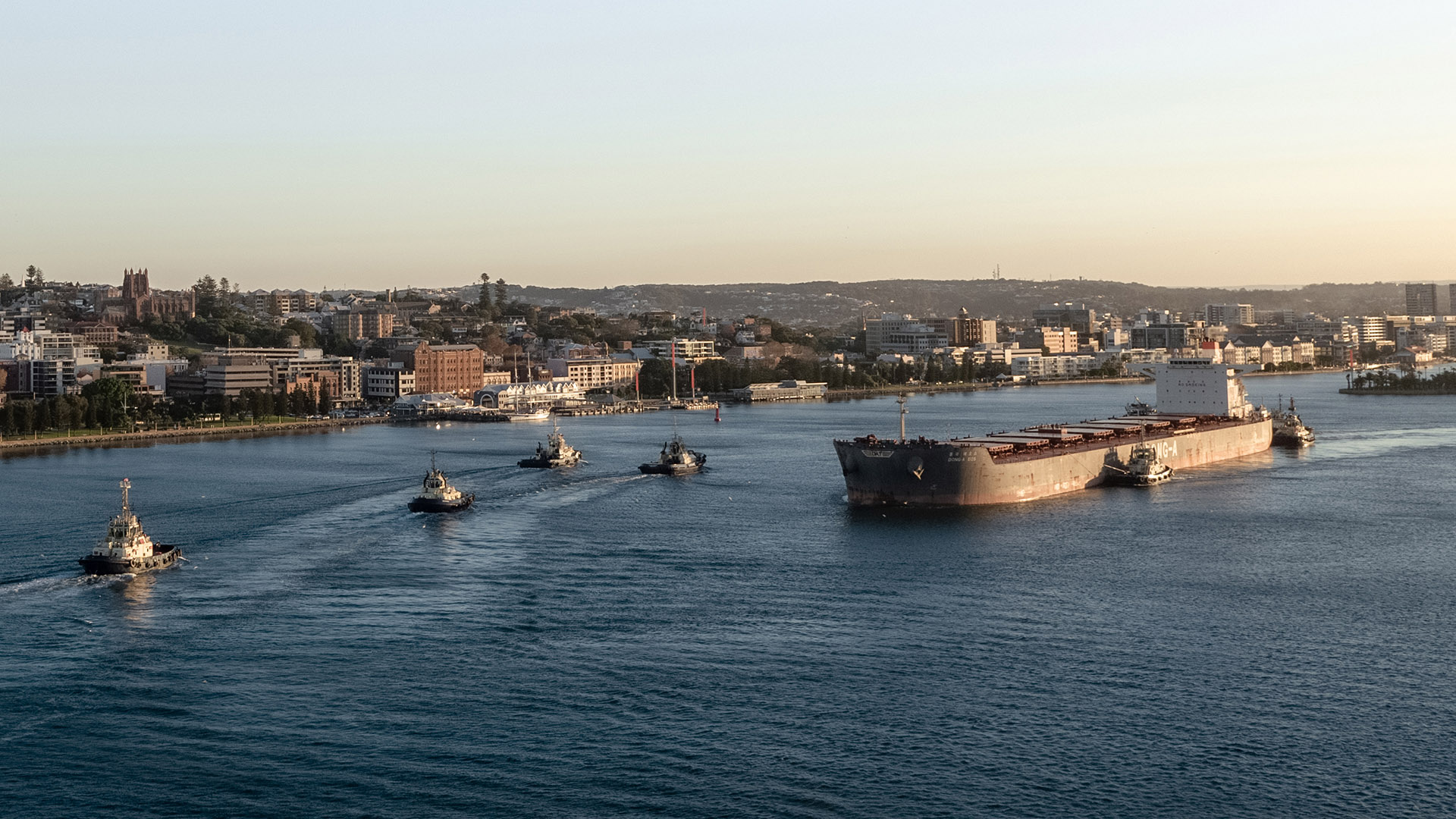

Port of Newcastle’s commitment to innovation and leadership in improving environmental practices has been commended by the NSW Department of Planning, Industry and Environment’s leading sustainability initiative, Sustainability Advantage.
Port of Newcastle has been awarded Silver Partner status in the Sustainability Advantage program, recognising the Port’s significant sustainability achievements since the launch of its Environment Social and Governance Strategy (ESG) in 2019.
Port of Newcastle CEO Craig Carmody welcomed the Silver Partner status announcement and said the Port’s ESG Strategy is critical to its ability to create a safe, sustainable and environmentally responsible Port for future generations.
“As custodians of the region’s most critical asset, it is imperative that we think in decades not years or months. By taking this long-term approach to our business strategy and embedding ESG initiatives and thinking into everything we do, we are working to create a strong, thriving Port that continues to support local jobs and the economic prosperity of the Hunter and NSW economies,” Mr Carmody said.
“Over the past two years we have made significant progress towards achieving our ESG Strategy commitments through key initiatives – including the transition of 75% of our vehicle fleet to electric vehicles; and securing a 100% renewable energy contract for 90.5% of our electricity usage, the remainder to be fully renewable by end of 2021. To date, we have reduced 35% of scope one and two emissions directly generated by Port of Newcastle. It is fantastic to have those efforts recognised through Sustainability Advantage awarding Port of Newcastle Silver Partnership status in the program.”
Sustainability Advantage Director Mick O’Flynn said Port of Newcastle has made remarkable progress in their sustainability journey since joining the program in 2019.
“Sustainability Advantage is proud to work alongside innovative businesses like Port of Newcastle who are leading the way in how businesses adopt sustainability and environmental practices to reimagine and reshape the future. Through its genuine commitment to the United Nations Sustainable Development Goals, Port of Newcastle is making a significant impact to the future prosperity of the Hunter and NSW regions,” Mr O’Flynn said.
Port of Newcastle Senior Manager ESG Jackie Spiteri said through the Sustainability Advantage program the Port has been able to align its ESG and diversification strategies with the principles of the United Nations Sustainable Development Goals.
“Port of Newcastle’s membership to the Sustainability Advantage Program has been a critical tool in guiding the development of the Port’s sustainability commitments set out in our ESG Strategy. By aligning sustainability initiatives across our operations with the United Nations Sustainable Development Goals we are taking a leadership role in the business community and are actively contributing to sustainable development targets globally,” Ms Spiteri said.
“Port of Newcastle’s ESG Strategy lays out our commitment to Net Zero by 2040 and Science Based Target initiative of 30% reduction greenhouse gas in line with below 2-degree trajectories.”
Through the introduction of Port of Newcastle’s renewable energy contract the Port has also been able to reduce emissions from tenants operating within its embedded networks, a total of 3570 tonnes of CO2e Scope 3 emissions to date.
This recognition follows the Port of Newcastle securing an industry first Sustainability Linked Loan in April which directly links the cost of its debt to achieving its science-based emission reduction targets.
Port of Newcastle
Port of Newcastle Port of Newcastle is Australia’s deepwater global gateway, the largest on the nation’s East Coast. Port of Newcastle is more than a port. It exists to build Australia’s prosperity with responsible, integrated and innovative supply chain solutions. With trade worth about $26 billion to the national economy each year, Port of Newcastle enables Australian businesses to successfully compete in international markets. The port currently handles 4,400 ship movements and 164 million tonnes of cargo annually, including dry bulk, bulk liquids, ro-ro, general and project cargoes and containers. With a deepwater shipping channel operating at 50% of its capacity, significant port land available and enviable access to national rail and road infrastructure, Port of Newcastle is positioned to further underpin the future prosperity of the Hunter, NSW and Australia. As custodians of the region’s critical asset, Port of Newcastle is diversifying its trade as it strives to create a safe, sustainable and environmentally and socially responsible future.
